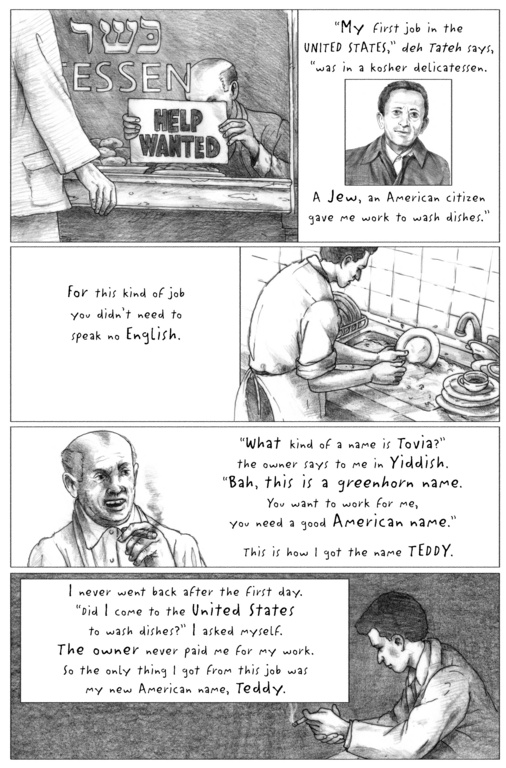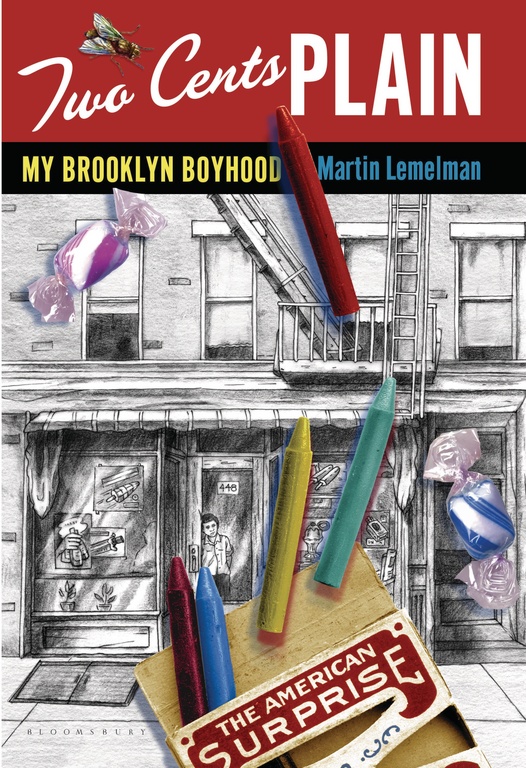Q and A with Martin Lemelman
Michael Orbach: Why did you write "Two Cents Plain: My Brooklyn Boyhood"?
Martin Lemelman: My first book, a graphic memoir, "Mendel's daughter," was the story of my mother surviving the Holocaust: how she lived in the forest in a hole where she hid with her two brothers and sisters. That was just her voice. I didn't intend on continuing the story but after I finished it, I thought I really need to continue. Initially it was my own story — how I dealt with my parents who were survivors — but it evolved into something more: their memories and their experiences in America as immigrants.
MO: What was the process of remembering these events like?
ML One thing leads to another. It's kinda funny how memory comes about. I smelled cardboard and I thought about the back of the candy store where my father kept all the merchandise, where we lived. It's kind of a literal remembering, but sometimes it's almost visceral. When I rub my thumb and forefinger together I feel the tail of the mouse that I killed.
MO: The book has an organic feel to it.
ML: I wanted it to be like that. I wanted it to have a feel of we're all sitting around the table. My memory is contradictory to my mother's and she tells me I don't know what I'm talking about.
MO: When did your parents pass away?
ML: My father passed away in 1984 and my mother in 1996.
MO: What is the story about?
ML: The story is about parents who come to America with two different versions of what America is. They make a life and through what happens to them, you not only find out about their lives, but about the immigrant experience.
MO: How did your parents differ in their view of America?
ML: My father wanted the idea of the golden land, [where] he could make it big and my mother wanted to live a regular life. In contrast, my mother was willing to integrate into society — she learned English; my father felt he lost a lot, he was kinda cheated out of his life in Europe. He wanted to be rich but he refused to learn the language. Up to the day he passed away, he was a stranger in a strange land.
MO: What was your childhood like?
ML: It was really interesting and very rich. It wasn't great sleeping in the back of the candy store, but it was wonderful getting up in the middle of the night and getting ice cream. It was nice, but it was hard to live with two parents who were damaged. I was lucky to have a brother whom I could rely on.
MO: Is it a sad book?
ML: No. Basically it sounds like a cliche, but it's life: funny and sad. It has hope. Is it a sad book? It's how you grow up and how people deal with life.

 65.0°,
Overcast
65.0°,
Overcast 







